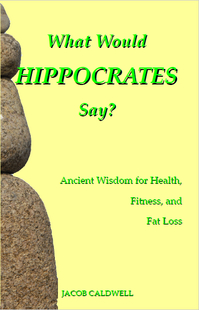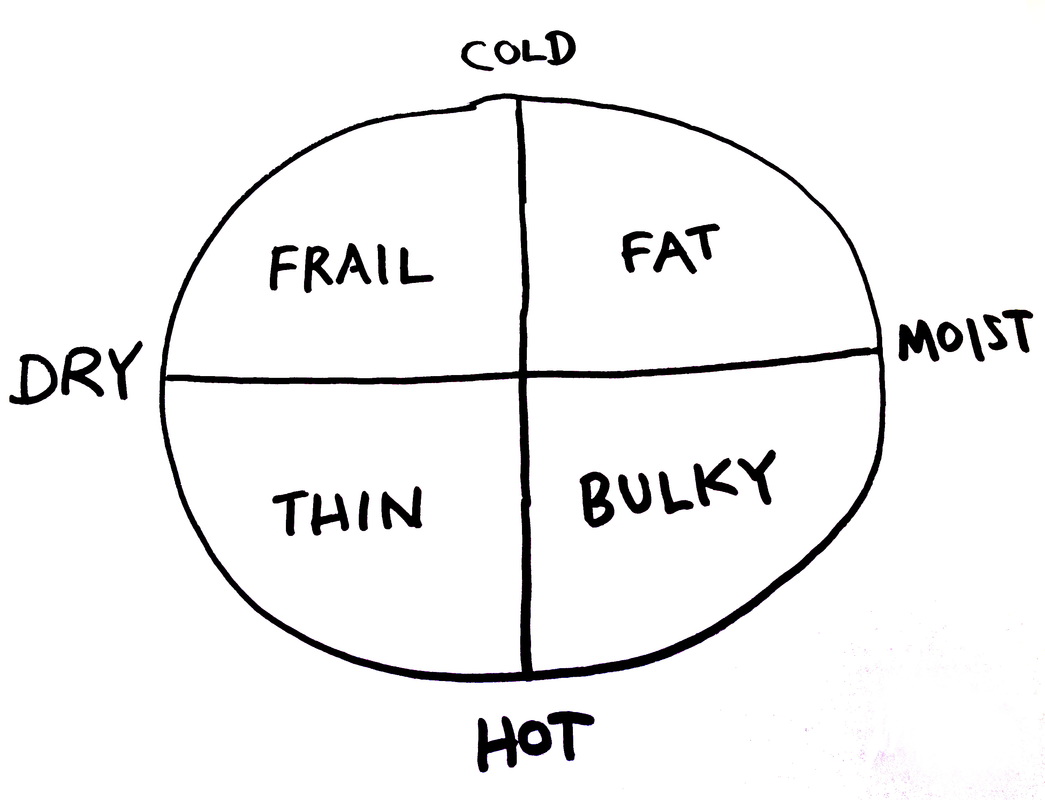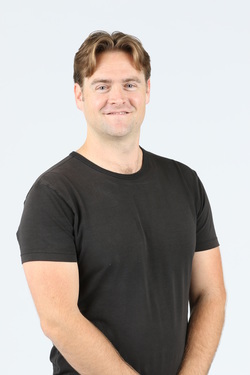
Those who do too much are almost always coming to see me because they injured themselves by doing something excessive. They hiked a mountain in record time, they lifted more weight than they have ever lifted before, they fell while skiing. For these people, if a little is good, then a lot must be a lot better. These people are always looking for an active solution to their problems: "What can I do to fix it?" If these people would just do half as much exercise and activity as they already do, then they'd be perfectly healthy and rarely have need to see me again. These people even hurt themselves with the wimpy therapeutic exercises that I give them, either doing too much of the exercises or doing them way too aggressively. The answer for these people is simply to do less.
On the other side are those who error toward doing too little. These people get hurt because they are out of shape, overloaded by the reasonable demands of life. They may have been hurt doing something active, but it's because they weren't physically prepared to do the activity that got them into trouble. More often, these people are hurting from some unknown cause: random headaches, neck aches, low back pain, etc. Again, this all occurs because their bodies are under-prepared for life. In general, these people would prefer a passive solution: "just fix me," they say. I can barely get them to do one or two wimpy therapeutic exercises. The answer for these people is obviously to do more. If these people would just go for a walk and do a couple of mild exercises each day, then they'd probably feel much better and rarely come to see me.
One of the big problems for both groups of people is that we all think that we need to do way more than we actually need to do. To be healthy, we don't have to train like athletes. Those who do too much are trying to fill some ridiculously high imaginary quota, trying to train like an Olympian, while those who do too little are discouraged by how much they think they need to do in order to be healthy. But here's what Hippocrates, the ancient Greek physician and Father of Medicine says, "The extreme of this athletic state, which is [the athlete's] ultimate aim, actually endangers health." And let's hear what the ancient Roman physician Galen has to say:
| ... it is necessary for athletes, in order that they may prepare themselves for their labors in competitions, to practice immoderately sometimes all day at their objective exercise, which they call training. But for those exercising for the sake of health alone, it is not necessary nor at all useful to be led into excessive labor, so that there is no fear of incurring fatigue. |
Finding the moderate point is what Hippocrates repeatedly tries to encourage in his writings. He has powerful, ancient wisdom toward this end. He is the voice of moderation, and he can help us find a moderate exercise regimen that will work for all of us. Those who do to much, prepare to be convinced to do less, and those who do too little, prepare to be encouraged to be a bit more active.
In my new book What Would Hippocrates Say?, I describe Hippocrates' plan to keep us healthy, giving a detailed regimen for exercising, massaging, bathing, eating, and sleeping the way Hippocrates recommends. Here's a short excerpt from my book:
| Most all readers will fall into one of four categories: those who exercise too much and eat too much and so become excessively large and muscular, those who exercise too much and don't eat enough and so become excessively lean, those who don't exercise enough and don't eat enough and so become frail, and those who don't exercise enough and eat too much and so become fat. The diagram below illustrates the four common excesses due to immoderate exercising and eating. Very few of us are actually exercising and eating moderately, and therefore very few of us are well-balanced. |
Spend a moment reflecting on how you exercise. Are you an over-exerciser or an under-exerciser? Either way, how can you move toward a more moderate regimen? Hint: If you're an over-exerciser, then the answer isn't to add new activities, but to remove some, and if you're an under-exerciser, then the answer is to get a little more exercise into your life. If you want some sage advice from someone who guided Western health practices for thousands of years, try reading What Would Hippocrates Say? This was a book born from my own fascination with how much these ancient people knew about being healthy and how wise their advice is. While reading Hippocrates, I quickly noticed that I was a severe over-exerciser who was brutalizing myself for no good reason. Hippocrates saved me from a lot of future aches and pains, and I'm convinced that he can do the same for everyone, under-exercisers and over-exercisers alike.


 RSS Feed
RSS Feed
